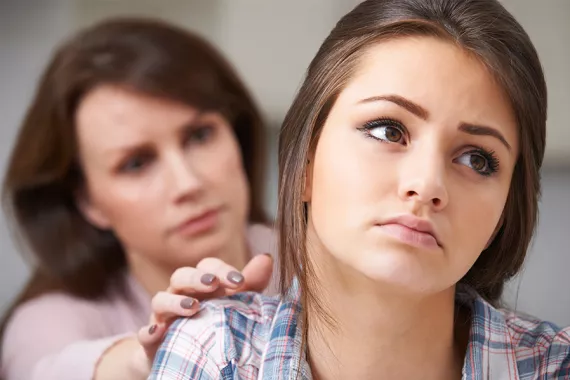
The Legal Team
- Andrew P. Arnold
- Esther E. Berezofsky
- Ebony Williams Bobbitt
- Riley Breakell
- Abigail Burman
- Jessica L. Carroll
- Grace P. Chandler
- Jessica C. Colombo
- Sara O. Couch
- Nelson L. Drake
- Jodi Westbrook Flowers
- Jade A. Haileselassie
- Mathew P. Jasinski
- Marlon E. Kimpson
- Annie E. Kouba
- Tope O. Leyimu
- Paul T. Lyons
- Kate E. Menard
- Donald A. Migliori
- Lance Oliver
- Jonathan D. Orent
- Joseph F. Rice
- Tammy Cauley Rivers
- Previn Warren
Case Overview
The rise in social media use has contributed to a mental health crisis among American youth. Studies show a connection between social media and low self-esteem. Adolescents who spend more time on apps like Instagram, TikTok and Snapchat are more likely to compare themselves to their peers and view themselves in an unfavorable light.
Key takeaways about social media and low self-esteem
- Low self-esteem is a negative impact of social media usage in adolescents. Some experts claim that some social media app features contribute to low self-esteem.
- Schools may not be fully equipped to help students dealing with mental health issues, especially with social media believed to be playing a larger role in these issues.
- Social media lawsuits allege that the designers of social media platforms deliberately include potentially dangerous features to increase user engagement.
How does social media affect self-esteem?
Social media apps encourage unhealthy, negative social comparisons by encouraging their users to depict “perfect” versions of their lives. When adolescents see these “perfect” versions of their peers online, especially those enhanced by app features, they can make unhealthy comparisons and become overly critical of themselves. As a result, their self-esteem may be damaged.
Social media features, such as beauty filters or endless scrolling, encourage excessive or problematic use of the products. They also expose children to a continuous stream of fake appearances and experiences.
Time spent using social media is also a factor. A 2019 study of Americans from age 12 to 14 found it’s possible to predict how satisfied a young person is with their body based on how often they use social media. The more they used social media apps like Instagram, the less satisfied they were.
Social comparison fuels self-doubt
Social media platforms harm self-esteem by encouraging negative social comparisons and self-doubt. The most common type is upward comparison, where a person compares themselves to someone they perceive as superior.
Adolescents often compare themselves and their lives to people they believe are more popular. These people are likely to include:
- Celebrities
- Social media influencers
- Their peers
What is self-esteem?
Self-esteem is more than just body image, it’s the totality of the way people value and perceive themselves.
A person’s self-esteem affects their ability to:
- Assert themselves
- Maintain good mental health
- Make decisions
- Try new things
Low self-esteem can lead to feelings of worthlessness. It’s often a cause of depression. Critically, a young person’s self-esteem is more vulnerable than an adult’s. Research shows that humans are born with the tendency to compare themselves to others to determine their social standing and abilities. Social media is a convenient way to measure these standings. Many adolescents who struggle with social media use also struggle with low self-esteem.
The benefits of healthy self-esteem
Research shows that healthy self-esteem improves relationships, work fulfillment, and mental and physical health. The benefits are the same regardless of race, gender and ethnicity.
People with healthy self-esteem feel good about themselves. They are proud of what they can do, can cope with mistakes and are more willing to try again when they fail. Boosting the self-esteem of individuals will benefit these individuals and all of society. Studies suggest that adolescents who report higher self-esteem function better at school, at home and with friends.
How does Instagram affect self-esteem?
Instagram is a free social media app that allows users to share photos and videos. Some Instagram features, such as photo editing and continuous scroll, affect self-esteem. Research shows that spending large amounts of time on Instagram may harm the self-esteem of women and teen girls, in particular.
Instagram users can view, comment on, and like social media posts shared by their friends. When someone gets a like on an Instagram post, it serves as a “reward.” Our bodies produce dopamine when we receive rewards. Dopamine is a chemical related to pleasure. Not receiving these expected rewards can cause obsession.
Internal Instagram research reveals harms
Some of Instagram’s internal research studied the app’s effect on self-esteem and related outcomes. According to a publicly available internal Instagram report:
- Young women often view and describe themselves differently after being on Instagram. Their self-perceptions changed from “multi-dimensional” and “centered” to “not in control,” “dark,” “boxed in,” “low esteem” and “anxious.”
- Poor self-esteem can cause or contribute to eating disorders, body dysmorphia, body dissatisfaction, depression and loneliness.
- The main categories of harm from using Instagram were social comparison, social pressure and negative interactions with other people.
Instagram gives boys and girls constant access to a tool that makes it easy for them to compare themselves to others. This makes it nearly impossible to avoid comparison.
Parents and others are filing lawsuits against Meta, the parent company of Facebook and Instagram. The Instagram lawsuits allege that these apps are connected to addictive behavior and serious mental health consequences among young people.
How does Snapchat affect self-esteem?
Snapchat, created in 2011 by three college students, is now one of the world’s most popular social media apps. It began as a disappearing-message chat app, but the platform now has some concerning new features. Some of these features can be dangerous and addictive. They also specifically target young users.
Charms
Snapchat includes user rewards called Charms. Similar to “Likes” on other apps, they reward users for reaching milestones in their interactions with others. Charms are highly addictive and intended to drive Snapchat use. Users unlock more Charms as they interact more with one another. Two Snapchat users may unlock a “Best Friends Forever” (BFF) Charm if they reach the top of each other’s friends list. All this increases social comparison and undermines self-esteem.
Negative effects of Snapchat’s filters
Filters create unrealistic, idealized versions of users that may lead to dangerous body image issues in teenagers, particularly girls. Snapchat’s filters can be used to change a user’s appearance. Physical appearance is often critical to an individual’s identity. It also usually affects psychological well-being and self-esteem.
A 2017 study revealed that, because of the lenses and filters, Snapchat was ranked the second worst social media platform for harming the mental health of children and adolescents. Instagram took first place. In another study, even users with higher self-esteem felt they looked 44% worse before they edited their image with a filter.
Virtually modifying one’s appearance can also cause anxiety, promote shame and motivate people to seek cosmetic surgery. In recent years, plastic surgeons have seen an increase in requests for alterations matching Snapchat’s filters. Physicians have coined the phrase “Snapchat dysmorphia” to describe a type of body dysmorphic disorder allegedly caused by Snapchat’s beauty filters. Snapchat dysmorphia may lead to a “sense of unattainable perfection,” which may result in self-alienation and damage to a person’s self-esteem.
If your child has suffered self-esteem and mental health challenges because of the app, consider filing a Snapchat lawsuit to hold the responsible parties accountable.
Other social media apps and self-esteem
Social media apps like Facebook, YouTube and TikTok may also impact self-esteem.
- Current research found that Facebook’s News Feed encourages social comparison that leads to lower self-esteem and increased depression.
- YouTube and its autoplay feature may foster addiction and increase time spent on the site, which may warp social media users’ perceptions of their body image. The same can be true of users’ satisfaction with their daily lives.
- TikTok offers numerous features similar to Snapchat and Instagram. These features include filters and continuous scrolling — both of which have been linked to memory impairment, difficulties retaining information, and poor mental health.
Mental health crises derail schools’ focus on education
Schools are, in many cases, at the forefront of addressing student mental health. School districts and other regional government agencies face a growing number of mental health crises, many of which can be attributed to social media platforms.
Some school districts allege that defective, dangerous social media platforms force them to devote more time and resources to students’ mental health. This disruption comes at the expense of carefully planned lessons and teaching methods.
School districts, with their limited resources, are arguably in an unfair fight against the nearly inexhaustible wealth of social media companies.
Schools seek adequate mental health resources
Less than half of the public schools that participated in a National Center for Education Statistics poll say they’re equipped to adequately care for students’ mental health needs.
Several state legislatures are considering bills aimed at addressing social media-related mental health issues. Some of the legislation proposes equipping schools with evidence-based approaches to dealing with students’ excessive social media use. Other bills focus on cyberbullying, or they propose stricter guidelines for social media companies.
In addition, the federal government allocated $2 million to establish the Center of Excellence on Social Media and Youth Mental Health, which launched in February 2023.
How to help someone experiencing self-esteem issues stemming from social media
Parents need to be aware of self-esteem issues in their children. A child may be suffering from low self-esteem if they:
- Seem unsure of themselves
- Hesitate to join in because they think others won’t accept them
- Allow others to treat them poorly
Experts recommend that parents can boost a child’s self-esteem by:
- Not minimizing or trivializing their experiences on (and reactions to) social media
- Encouraging them to take a social media holiday (or taking one as a family)
- Modeling a healthy response to failure
- Praising their efforts no matter what the outcome
If your child has self-esteem issues or other challenges linked to their social media use, a pediatric psychologist or other mental health professional may be able to help. Some parents have chosen to file lawsuits on behalf of their children who’ve suffered similar harms.
Self-esteem and social media lawsuits
Self-esteem issues are just one of many harms cited in social media lawsuits. Social media addiction or problematic use may foster low self-esteem, which can lead to mental health disorders and other injuries in young people. These may include:
- Anxiety disorders
- Depressive disorders
- Disruptive behavior, poor impulse control and other conduct disorders
- Eating disorders
- Obsessive-compulsive and related disorders
- Self-harm
- Sleep disorders
- Suicidal ideation
- Suicide
- Trauma and stressor-related disorders
Our attorneys can help you determine eligibility for a social media lawsuit. They understand state and federal laws and statutes of limitations, and will help you gather relevant information to file a claim. They will also support you throughout the entire legal process.
Our social media lawsuit experience
For decades, Motley Rice attorneys have fought for families. Our experience includes representing people dealing with tech companies and the harm they’ve allegedly caused. If you’re looking to file a lawsuit for social media harm your child has experienced that led to severe self-esteem issues, our law firm wants to help.
How does social media affect self-esteem?
What is self-esteem?
How does Instagram affect self-esteem?
How does Snapchat affect self-esteem?
Other social media apps and self-esteem
Mental health crises derail schools’ focus on education
How to help someone experiencing self-esteem issues stemming from social media
Self-esteem and social media lawsuits
Our social media lawsuit experience
Who can file a social media harm lawsuit? Parents or guardians can file a lawsuit against social media companies on behalf of their minor children who suffered mental health harms such as suicidal ideation, eating disorders and depression requiring hospitalization. Young adults can also file a lawsuit if they were minors when their trauma was diagnosed or treated.
- Sources
- ABC News. What happens when lines blur between real and virtual beauty through filters?
- Alfasi Y. The grass is always greener on my Friends’ profiles: The effect of Facebook social comparison on state self-esteem and depression. Personality and Individual Differences. 2019 Sep;147:111–7.
- All4Ed. How States are Thinking About Social Media and Mental Health.
- American Psychological Association. Self-esteem.
- American Psychological Association. Tackling mental health issues in schools: What will it take?
- Business Insider. What happens to your brain when you get a like on Instagram?
- Chansiri K, Wongphothiphan T. The indirect effects of Instagram images on women’s self-esteem: The moderating roles of BMI and perceived weight. New Media & Society. 2023 Oct;25(10):2572–94.
- Chen J, Ishii M, Bater KL, Darrach H, Liao D, Huynh PP, et al. Association between the use of social media and photograph editing applications, self-esteem, and cosmetic surgery acceptance. JAMA Facial Plast Surg. 2019 Sep 1;21(5):361–7.
- Child Mind Institute. Social Media and Self-Doubt.
- CNN. Instagram worst social media app for young people’s mental health.
- Education Week. Schools Feel Less Equipped to Meet Students’ Mental Health Needs Than a Few Years Ago.
- Harvard Business Review. Research: How AR Filters Impact People’s Self-Image.
- Instagram Help Center. About Instagram.
- LearnSafe. How YouTube and Instagram Affect Young Teens.
- Lee JK. The effects of social comparison orientation on psychological well-being in social networking sites: Serial mediation of perceived social support and self-esteem. Curr Psychol. 2022 Sep;41(9):6247–59.
- Nemours KidsHealth. Your Child’s Self-Esteem.
- Nesi J, Prinstein MJ. Using social media for social comparison and feedback-seeking: gender and popularity moderate associations with depressive symptoms. J Abnorm Child Psychol. 2015 Nov;43(8):1427–38.
- New York Post. How doom scrolling at night might be ruining your health.
- Riehm KE, Feder KA, Tormohlen KN, Crum RM, Young AS, Green KM, et al. Associations between time spent using social media and internalizing and externalizing problems among us youth. JAMA Psychiatry. 2019 Dec 1;76(12):1266–73.
- Salomon I, Brown CS. The selfie generation: examining the relationship between social media use and early adolescent body image. The Journal of Early Adolescence. 2019 Apr;39(4):539–60.
- The Wall Street Journal. Teen Mental Health Deep Dive.
- The Wall Street Journal. The Facebook Files.
- Verywell Mind. Social Comparison Theory in Psychology.
- Wang JL, Wang HZ, Gaskin J, Hawk S. The mediating roles of upward social comparison and self-esteem and the moderating role of social comparison orientation in the association between social networking site usage and subjective well-being. Front Psychol. 2017 May 11;8:771.
Start Your Motley Rice Consultation in Simple Steps
Submit Information
Call us or fill out our online form with the details of your potential case.
Case Review
Our team reviews your information to assess your potential case.
Case Consultation
Talk with us about next steps.



